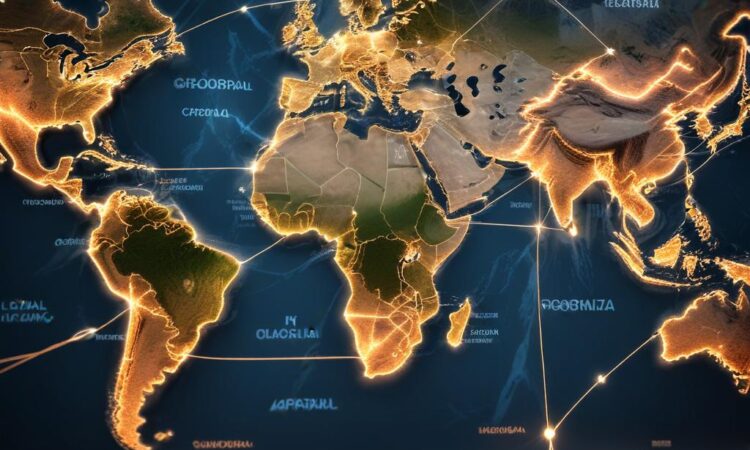Geopolitical Risk and Supply Chains: Navigating a Volatile Landscape
The interconnectedness of the global economy has made supply chains increasingly vulnerable to geopolitical risk. Ongoing conflicts and tensions around the world are disrupting supply chains and creating uncertainty for businesses. This includes the impact of the war in Ukraine on energy markets, the ongoing tensions between the US and China, and the geopolitical implications of global events.
The Impact of the War in Ukraine
The war in Ukraine has had a profound impact on global supply chains, particularly in the energy sector. Russia is a major producer and exporter of oil and gas, and the war has led to sanctions on Russia and disruptions to energy supplies. This has driven up energy prices worldwide, contributing to inflation and economic uncertainty. The war has also disrupted supply chains for essential commodities such as wheat and fertilizers, as Ukraine and Russia are major producers of these goods.
US-China Tensions
The ongoing tensions between the US and China have also created uncertainty for businesses. The two countries are engaged in a trade war, with tariffs imposed on goods traded between them. This has made it more expensive and difficult for businesses to import and export goods. The US has also been taking steps to reduce its reliance on China for key technologies and manufacturing, which could lead to further disruptions in supply chains.
Geopolitical Implications of Global Events
Global events, such as the COVID-19 pandemic, can also have significant geopolitical implications. The pandemic disrupted supply chains worldwide, leading to shortages of essential goods and materials. It also highlighted the fragility of global supply chains and the need for greater resilience.
Mitigating Geopolitical Risk
Businesses can take a number of steps to mitigate geopolitical risk. These include:
- Diversifying suppliers: Businesses can reduce their reliance on any one supplier by sourcing goods from multiple locations.
- Building strategic partnerships: Partnerships with other businesses can help share risk and create more resilient supply chains.
- Developing contingency plans: Businesses should have plans in place to address potential disruptions to their supply chains.
- Improving transparency: Businesses should have a clear understanding of their supply chains and the risks they face.
- Engaging in advocacy: Businesses can engage in advocacy efforts to promote policies that support global trade and stability.
Conclusion
Geopolitical risk is a significant challenge for businesses operating in a globalized world. The ongoing conflicts and tensions around the world are creating uncertainty and disruptions to supply chains. By taking steps to mitigate these risks, businesses can improve their resilience and safeguard their operations.
Understanding the Future of Global Trade
The evolving geopolitical landscape is a key driver of change in global trade. It is essential for businesses to stay informed about the latest developments and trends in order to make informed decisions about their supply chains.
Understanding the impact of geopolitical events on supply chains, as well as the potential for future disruptions, is crucial for business success. By staying informed and taking proactive measures to mitigate risk, businesses can navigate the volatile landscape and build a more secure and resilient future.

